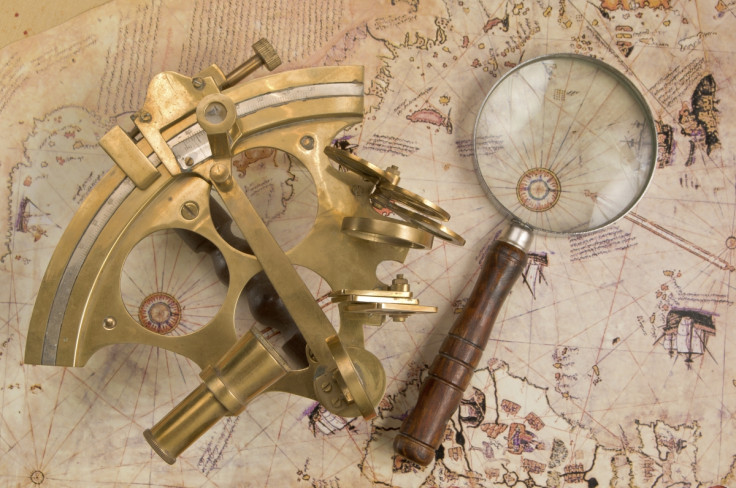US Navy returns to ancient practice of navigating by the stars due to hacking fears

Forget satellite navigation – the US Navy is reinstating classes on the centuries-old practice of celestial navigation after realising that if GPS systems are hacked, they need a back-up plan.
For centuries, our ancestors relied on angular measurements taken from between a celestial body – such as the sun, the moon, the stars or a planet – and the visible horizon to identify their position when sailing on the sea.
This ancient science is known as celestial navigation, and it is performed using a sextant – a double-reflecting navigation instrument that uses mirrors to measure the angle between two visible object, first seen in the 18<sup>th century.
The use of celestial navigation died out in the 1990s with the advent of satellites that could provide instant precision GPS tracking 24 hours a day, and the lessons in the old technique were officially struck off the Naval Academy's curriculum. Now, though, the US Navy wants to bring them back.
"We went away from celestial navigation because computers are great," Lt. Cmdr. Ryan Rogers, the deputy chairman of the academy's Department of Seamanship and Navigation told Capital Gazette. "The problem is, there's no backup."
As hackers and cybercriminals become more sophisticated in their attacks, the fear is that someone could hijack the GPS systems of US warships, which would leave the navy stuck, since lieutenants who have joined the Navy in the last decade don't have the training to navigate the old way.
While celestial navigation can calculate locations to within 1.5 miles, "you're within feet [using GPS]. You're not even in the same ballpark," said Rogers. "If you can use GPS, it's just so much more accurate, [but] we know there are cyber vulnerabilities."
Sales of sextants have decreased dramatically since GPS was invented, however, according to local nautical instruments company that the Capital Gazette spoke to, a few thousand sextants are still sold to people who own yachts, who fear lightning strikes hitting ships' masts and disabling GPS receivers in a storm.
Some of the older naval captains wanted to keep the old art of celestial navigation alive, and to that end they founded the Navigation Foundation to make sure that enough people were still proficient in the art in case of emergency.
"In the event that we had to go into a national emergency, we would probably have to shut the GPS down because it can be used by potential enemies," Navy Capt. Terry Carraway said.
"It would be pretty hard to train a lot of people in celestial navigation, so we wanted to keep contact with all the people who taught it."
Sadly, the foundation was disbanded as too many of the navigators died, but starting from next autumn, all enlisted ranks in the US Navy will start training in a special course on celestial navigation. There are now a total of 31 satellites that circle the Earth twice a day.
© Copyright IBTimes 2024. All rights reserved.







